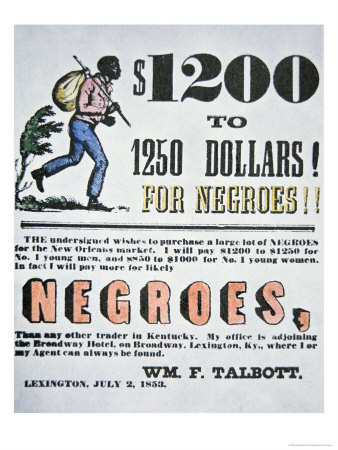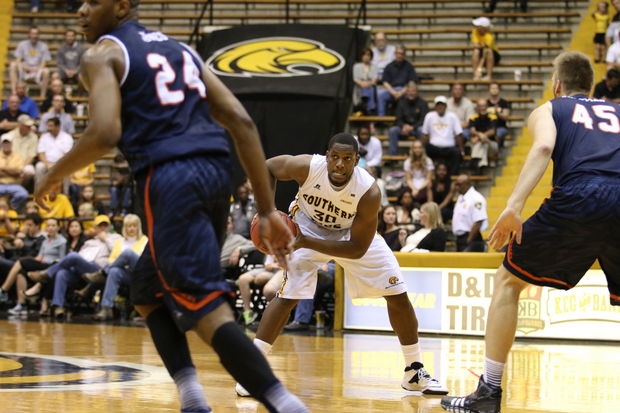
HATTIESBURG – (AP) It’s admittedly tedious work, but two University of Southern Mississippi history professors are about to spend long hours in libraries across the state combing through every antebellum newspaper they can find.
Douglas Chambers and Max Grivno are on the hunt for runaway slave advertisements from 1790-1860, and their mission is to build an Internet database of what they obtain.
“No one has ever attempted this before in Mississippi,” said Grivno, a historian of the Old South who specializes in slavery.
And he says has no idea yet how many ads he will find this summer.
“It could be in the thousands, and it could be less than that. It’s really hard to tell until you actually do the work.”
Runaway slave ads, often found in the classified section of newspapers, provide a rare glimpse into the humanity of slaves. That’s one of the attractions for Chambers and Grivno.
“One of the great challenges in studying slave societies is getting to the individual person – their personhood; their personality,” said Chambers, a scholar of the trans-atlantic slave trade.
Grivno explains that slaves didn’t always flee their masters to escape north to freedom. Often, it was a temporary escape as a form of protest against working conditions or to visit family members at another farm.
The masters in attempts to track them down, would list all identifying features of their runaway property.
Things like their facial features, clothes, mannerisms, skills and family members.
And some vital details you won’t find in census records at the time: First names, nicknames and last names.
So, while this digital archive will be of interest for academics, Grivno and Chambers state that the website could also serve as “a gold mine” for local genealogists who face an uphill battle with the past.
“For African-American genealogy, the most difficult thing is to cross the divide into slavery,” explained Chambers. “Most white Americans can tell some sort of story about their ancestry – my people came from Scotland, Germany or whatever – the vast majority of black people cannot.”
Fueling their research is a $25,000 National Park Service grant that will allow them to put the first website together by the end of the year.
It will be a full-text searchable compendium of these ads that will link to relevant visual and audio materials.
But Chambers and Grivno have bigger ambitions. They plan on applying for a $250,000 National Endowment for the Humanities grant to broaden the scope of the project to the Gulf South by partnering with researchers at the University of Memphis and the University of New Orleans.
Eventually, they even hope to embark upon a multi-million dollar research project that will see them dig into the runaway slave ads of the Caribbean and Brazil – where 95 percent of slaves from the trans-atlantic slave trade landed – and other world slave populations.
Supporting Grivno and Chambers in their funding search is Southern Miss Associate Vice President for Research Gordon Cannon.
Cannon said research grants for the humanities usually require a little more hunting than grants for the sciences.
But the rewards are great, not simply because they provide the required financial fuel for research projects, but they also reinforce their validity.
“It’s the best peer review you can get,” he said.
That’s why the VP’s office will fund a faculty fellowship this summer, to be filled by religion professor Dan Capper, that will help folks in the liberal arts hook up with external funding sources.
Chambers said that a project like this shows the vitality of humanities-based research.
“There are multipliers for a humanities-driven project like this in public awareness; in creating knowledge; and creating knowledge that has a social use. It’s creating knowledge in the public trust, which is what a good university does,” he said.
“It has nothing to do with enabling the citizens to get better jobs,” he explained. “It has everything to do with enabling people to know themselves better.”
Cannon only has one quibble with those sentiments: That the goal of education to “know thyself” doesn’t ultimately lead to better jobs.
But he agrees that a necessary component of the university experience must include a foundation of the humanities, with math and science.
“In my opinion, you don’t go to a university to get trained. You go to get an education,” said Cannon.




Be the first to comment